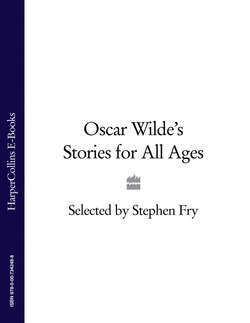Читать книгу Oscar Wilde’s Stories for All Ages - Оскар Уайльд, Stephen Fry, F. H. Cornish - Страница 6
Introduction
ОглавлениеAn often overlooked characteristic of Oscar Wilde is his interest in social politics and the poor. He understood all too well that only the well-off imagine that poverty can be described as noble or dignified. His essay The Soul of Man Under Socialism remains one of his very finest works and many of the ideas in it find fabulous (in the literal as well as the usual sense of that word) realisation in this perfect fairytale, The Young King.
When you begin to read it you might think that this is a very Oscar Wilde story indeed. A beautiful youth surrounded by beautiful objects and exquisitely wrought works of art ornately described in exquisitely wrought prose. How very Oscar. But the story is really a moral fable that teaches us to understand where beauty grows. How acutely contemporary its concerns seem to us today, when the manufacture of every designer shirt and the sourcing of every banana and the provenance of every ounce of coffee make us quiver with self-conscious guilt and wobble with liberal shame. I don’t think we can claim that Wilde invented the idea of ethical purchasing, but he certainly gave it perfect expression.
I suppose the less faithful amongst us will find the ending a little too sentimentally Victorian for our tastes, but I think its startling pictorial nature excuses the religiosity. It is a simple enough moral: true beauty comes from the spirit; surface beauty can be horribly ugly. I hold it true today, that until you have sat in the lobby of a five-star hotel and watched the rich people with their Vuitton luggage, their Graff jewels and their Hermès blouses you have never seen true ugliness. It wasn’t Wilde who said ‘If you want to know what God thinks of money, just look at the kind of people he gives it to’, but it is a point of view he understood.
There is real dialectic in this tale, however, real argument. It would have been easy for the Young King to go straight from his dream to the church without meeting such stubborn and convincing opposition on the way. An argument is put to him from a working man that the King’s wealth creates wealth for others and that for him to eschew luxury is to wrench bread from the mouths of the poor. Wilde was no naïf when it came to politics. We could perhaps charge him with an over-pious Victorian ending, but the story leaves us with a question we all wrestle with to this day: Should we accept terrible injustice, inequality and poverty simply because the world is so complex that only the most radical change could eliminate them?
